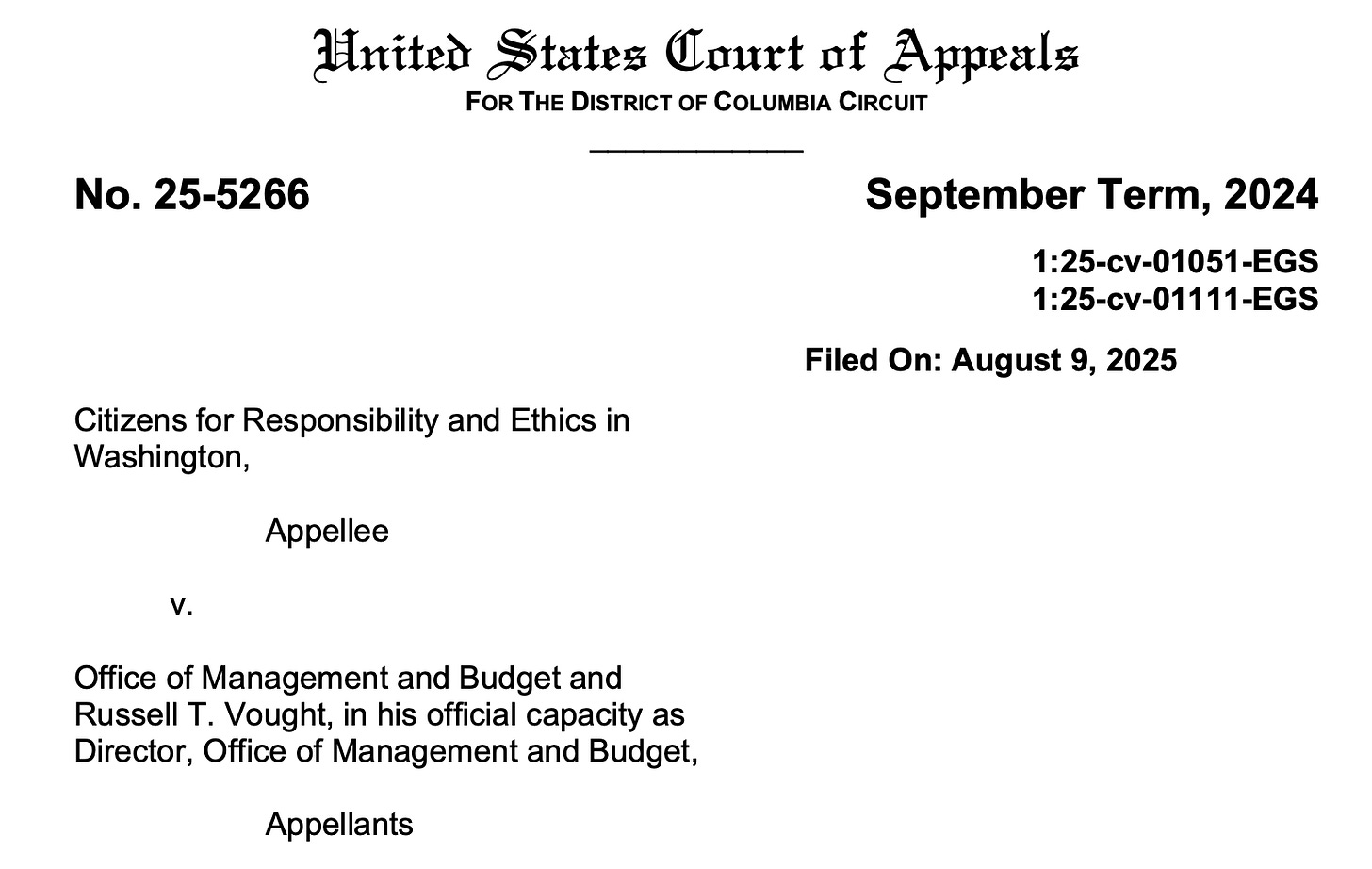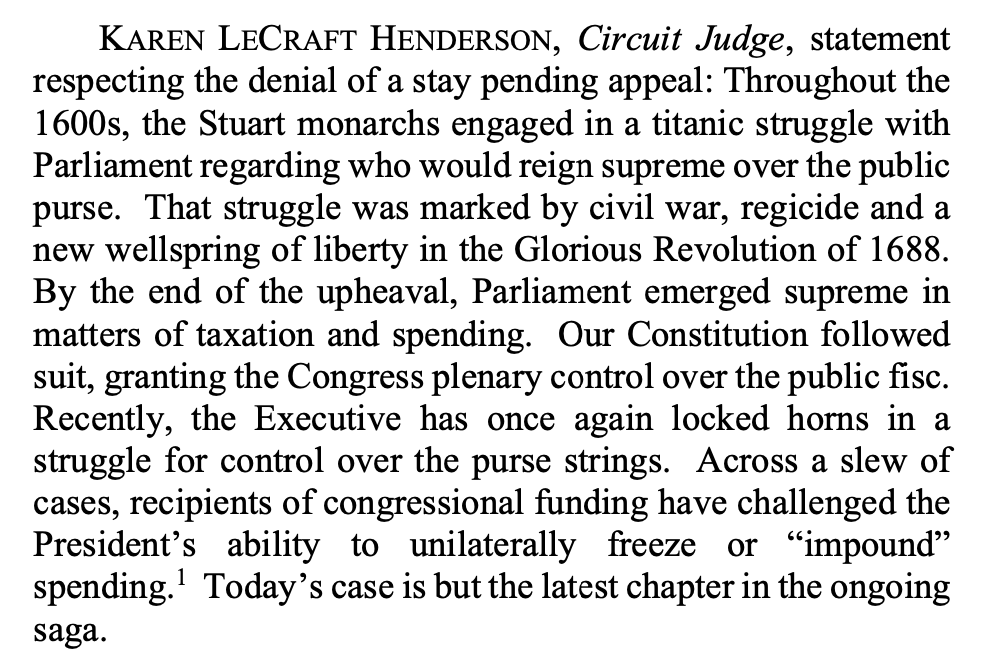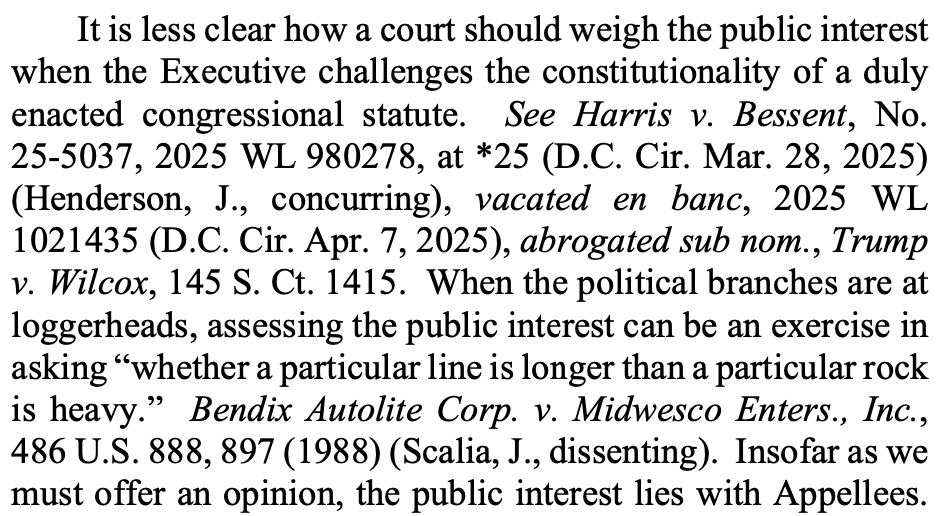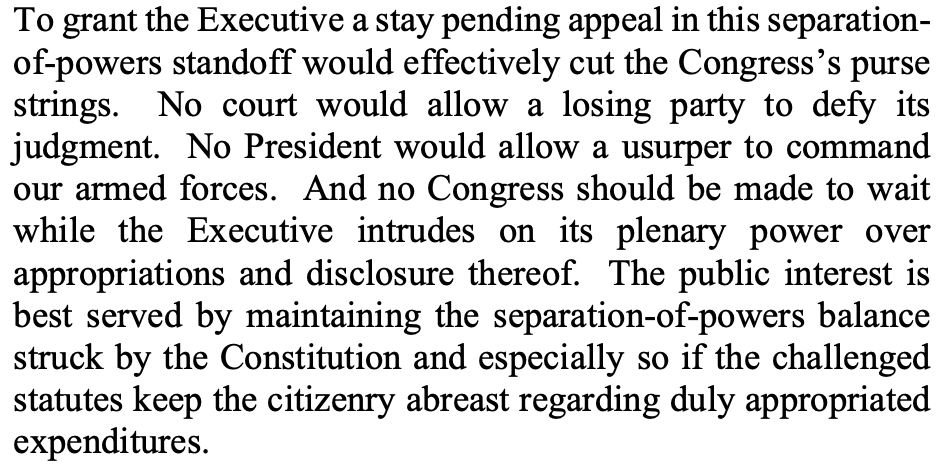Judge Karen Henderson is standing up for our divided system of government
She might be the only appellate Republican appointee in D.C. willing to do so regularly these days, but the D.C. Circuit judge has kept it up — for whatever branch needs it.
It’s not great out there.
Returning from vacation — and returning to America — I have felt a bit off since I got back. It took a minute to pin it down. It’s not that I wasn’t wanting to work. I needed a break, but I love what I do. In my final days in London, I was feeling invigorated about returning to it. It’s not that I wasn’t finding things I wanted to write about. There is always an unending supply of stories. That’s never been an issue for me — and certainly not these days. It was, instead, the clarity that came from literally escaping this country and the day-to-day crisis-building atmosphere that surrounds President Donald Trump — and then returning to it.
Taking the frog out of the water for two weeks, as it were, and then throwing it back in the pot.
Coming back to work on Thursday to the continued Epstein questions; the Texas redistricting lawlessness, which continues with absurd lawsuits; the failure of too many Democratic leaders to stand up to hate (Gavin Newsom and Pete Buttigieg, I’m looking at you); the continued reality that the leaders of Congress aren’t standing up for their institution and that the majority on the Supreme Court isn’t, either; and the aggressive effort by the Trump administration to try and crush the institutions that still are pushing back was alarming. Then, on Friday, Trump ousted his own pick for the head of the Internal Revenue Service as a dispute over how much the agency should break the law in service of Trump was ongoing. Hours later, a shooter appears to have targeted the Centers for Disease Control and Prevention because of anti-vaccine radicalization. And there’s whatever the hell Trump thinks he is going to do to D.C.
Enter Judge Karen LeCraft Henderson.
In her 35 years on the U.S. Court of Appeals for the D.C. Circuit — a seat she was nominated for by then-president George H.W. Bush in 1990 after Kenneth Starr resigned from the bench to become solicitor general — the 81-year-old Henderson has been a constant, and at times sharp, conservative voice on the court as it skewed further left.
And yet, while Henderson has gone along with many conservative and even Trumpian arguments over the years, she has on a handful of occasions in recent years proven immovable on certain points.
Most notably, Henderson rejected Trump’s immunity arguments in 2024 and his Alien Enemies Act arguments earlier this year. Then, on Saturday, she rejected his administration’s arguments in a case over “impoundment” — the administration’s unilateral decision not to spend money allocated by Congress.
In all three cases, there is a common thread: Trump is seeking to upend — or, more clearly, ignore — the structural restraints inherent in our government, and Henderson took the position that he cannot do so.
Specifically, in the two second-term cases, Henderson has stood up to the executive branch for the other branches.
In March, Henderson stood up for the judicial branch.
“The government argues that we may not even assess the lawfulness of its conduct,” she wrote of the Trump administration’s arguments in the original Alien Enemies Act proclamation case.
“At the outset, the government’s suggestion that judicial review of the Alien Enemies Act is categorically foreclosed is incorrect.“ She went on to detail how the administration “draws the mistaken inference“ from a past AEA case “that all questions of AEA authority are political and thus beyond the scope of judicial review.“ But, she continued, “that is not what the Court held.“
Ultimately, and standing up for the judicial branch, what Henderson concluded was such:
At bottom, the government errs by “suppos[ing] that every case or controversy which touches foreign relations lies beyond judicial cognizance.” … Sensitive subject matter alone does not shroud a law from the judicial eye.
This was the conclusion of an opinion that began by recounting the 1798 roots of the law before her.
On Saturday, Henderson continued that — this time standing up for the legislative branch in an opinion that began with discussion of the Stuart monarchs of the 1600s. (So, yes, a return for me to my recent travels to London and Edinburgh.)
Henderson made clear that, for her, she sees this moment as a struggle that brings that moment to mind:
This is not a case about the random challenged act of a presidential administration. This is a would-be monarch, Henderson suggested, trying to take over — and reverse the outcome of a dispute from centuries ago.
The case itself is over the Trump administration’s decision to take down a website that Congress required the Office of Management and Budget start in 2022 to track its apportionment of federal funds allocated by Congress to agencies. After working “without hiccup or objection” since 2022, Henderson explained, “the Executive—facing multiple lawsuits claiming that it was unlawfully impounding congressional funds—changed course“ in March 2025. At that point, Henderson detailed, “OMB declared ‘that the disclosure requirements made OMB’s administration of apportionments more difficult’ and so it disabled the website and declared that it would no longer operate or maintain the website.”
That, in turn, led to this litigation — brought by Citizens for Responsibility and Ethics in Washington and Protect Democracy. In response, the Trump administration has argued in part that the website requirements, as Henderson put it, “unconstitutionally intrude on core Article II prerogatives.” To that, she responded: “Its argument fails on constitutional first principles.“ Henderson returned to the English history here before returning to the U.S. and the current case:
Disclosure of the very information at issue here is not only a permissible exercise of legislative authority; at the Founding, it was considered a necessary exercise of that authority. … As it now reads, the [Statement and Account] Clause provides that “a regular Statement and Account of the Receipts and Expenditures of all public Money shall be published from time to time.” U.S. Const. art. I, § 9, cl. 7.
Henderson detailed the ratification debates, concluding:
Three principles emerge from the Ratification history. First is the centrality of public disclosure regarding appropriations. Second is the Congress’s broad discretion to regulate those disclosures. Third is the danger of Executive overreach absent public scrutiny.
With that understanding, Henderson easily concluded that the Government has not shown that it is likely to succeed on the merits of its claim that the [website requirements] are unconstitutional.”
This request at the D.C. Circuit, however, was a request for a stay pending appeal and Henderson went on to discus the other factors that are included in such consideration. Among those are the public interest. Here, Henderson admitted this is a weird case:
The appellees are the groups suing to have the website restored. Why does the public interest lie with them? Henderson — again, a Republican presidential appointee who has been on the D.C. Circuit since 1990 — had this to say:
The stay request was denied and the website is required to be back online — and updated — by August 15.
With her statement that “no Congress should be made to wait while the Executive intrudes on its plenary power over appropriations and disclosure thereof,” Henderson did more on a Saturday afternoon in the summer to stand up for the constitutional powers of the legislative branch than House Speaker Mike Johnson or Senate Majority Leader John Thune have done all year.
Why does all of that matter?
It matters because, in the face of a Supreme Court that has been unwilling to protect our Constitution’s requirements, let alone its values, Henderson did not respond by saying, “This is pointless. Why bother?”
She has not given up or retired. She did not hold back or side with the Trump administration in this request. She did not even leave the writing to either of the Democratic appointees on the panel with her. She sat down and got to work. And, at the end of the day, Judge Robert Wilkins — an Obama appointee — joined her opinion. Judge Brad Garcia — a Biden appointee — did not write anything, but joined the decision denying the stay request.
I needed Henderson’s opinion this weekend as a reminder that each of us at every moment makes our own decision about how we are responding to this moment and whether we are living and acting on our values.
If and when we do — for me, at least — the words come more easily.
With that, I’m ready for the coming week.








Welcome back. Nice work tying together the need for reason to prevail with the recognition that each person must find their route to elevate that reason. Thank you.
Brava, Judge Henderson … but fingers in the dike, I fear—as you note, the six conservatives on the Supreme Court seem content to watch the quickening river pass by.